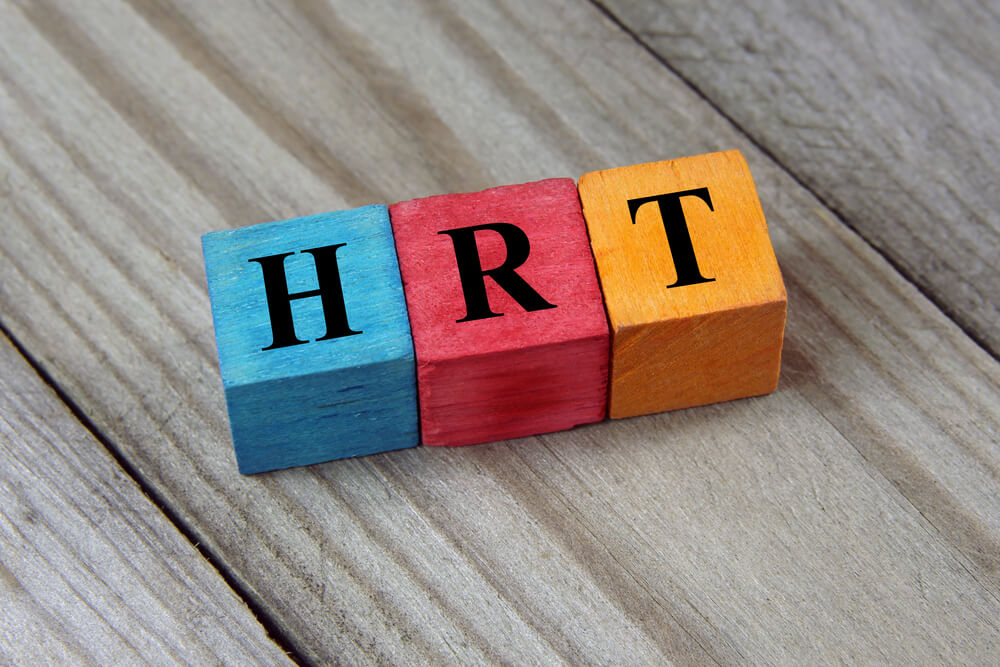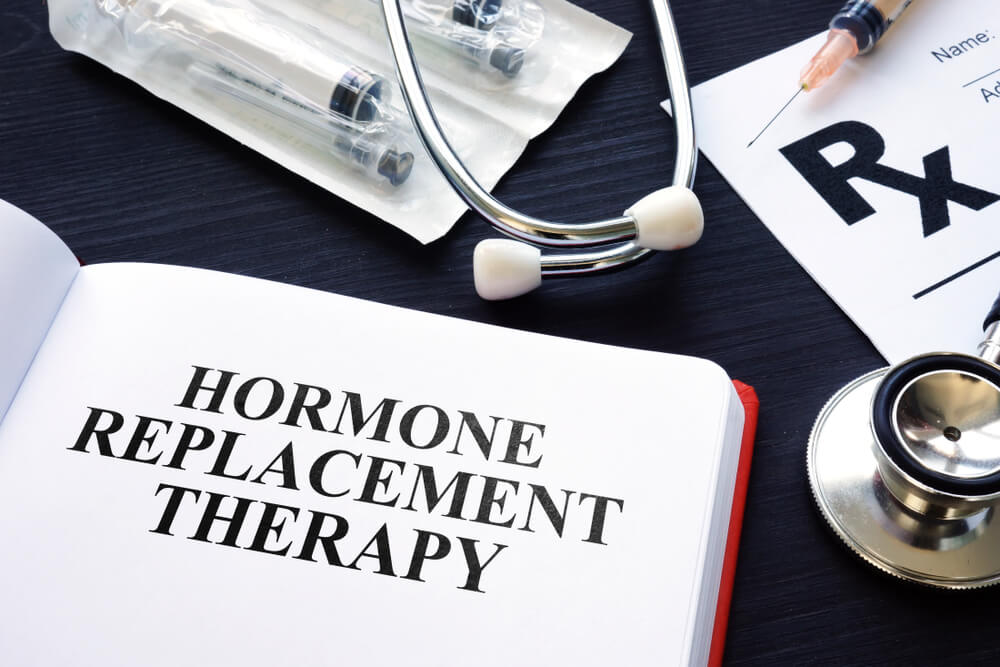The human body relies on a subtle balance of hormones to keep everything functioning correctly. If your hormone levels are excessively low, hormone replacement therapy can help. Hormone replacement therapy, or HRT, uses synthetic versions of hormones to replace those you are missing. There are all sorts of benefits of HRT therapy, and it has a surprising number of uses.
What Is HRT?
Hormone replacement therapy is a treatment that involves taking supplements for sex hormones like estrogen and progesterone. Estrogen plays an important role in managing bone density, sex drive, skin temperature, and urinary continence. Meanwhile, progesterone helps the body absorb estrogen more safely.
HRT helps whenever your body isn’t producing enough hormones. Many women get it to help with menopause, but it can also have other potential uses. Generally, HRT aids in diminishing various unpleasant symptoms.
There are all sorts of ways you can receive HRT. Often, the hormones come in the form of a pill you swallow or a patch you stick on your skin. They can also be available as a cream you rub onto your skin. You can get injections as well. For those who are going to be on HRT for a while, a doctor may recommend an implant that gradually releases the appropriate hormone into your bloodstream.

Different Types of HRT
Keep in mind that not all HRT treatment options are the same. The most common option is continuous HRT that contains both estrogen and progesterone. This involves repeatedly taking a treatment with a specially formulated balance of both hormone types.
If your body is still making progesterone, an HRT treatment with both hormones isn’t needed. Instead, your doctor may just prescribe you estrogen replacement therapy. This is especially common in cases when a person is taking HRT following the removal of their ovaries or uterus. You can apply estrogen directly to the vagina to help with dryness while reducing some of the side effects associated with HRT.
Another potential option is cyclical HRT. This type of HRT involves cycling between estrogen and progesterone. The most common method is to take estrogen every day and take progesterone 14 days out of each month. This treatment can be helpful for women who are still getting their periods but are also struggling with menopausal symptoms.
Do You Need HRT?
The most common reason to visit an HRT clinic is if you have started menopause. During menopause, hormone levels decline sharply. This can cause all sorts of unpleasant symptoms like vaginal dryness and hot flashes. Hormone replacement therapy can alleviate this discomfort caused by the interactions of hormones and menopause. It is useful for both perimenopause and menopause symptoms.
HRT is also used to treat other similar conditions. If you’ve had your ovaries removed for problems like endometriosis, your doctor may recommend HRT to help balance your hormone levels. Your doctor might also suggest you try HRT if you have pituitary gland problems or other conditions that keep your body from producing appropriate amounts of certain hormones.
Benefits of HRT Therapy
The biggest benefit of HRT is that it can eliminate menopause symptoms. You can avoid discomfort from issues like hot flashes or vaginal dryness. It even helps with menopause symptoms like insomnia and difficulty concentrating. Many women report that using HRT improves their well-being and makes it easier to enjoy their golden years.
HRT helps manage several age-related issues, so it can improve muscle function, reduce heart attack risks, and prevent aging skin. Research has also linked HRT to reduced risks of various health conditions that menopause may cause. Studies have shown that it lowers your chances of developing osteoporosis or colon cancer.
Does HRT Have Any Side Effects?
HRT can be very beneficial, but this doesn’t mean it’s without downsides. Like any other medication, there’s a risk of side effects. Some people receiving HRT may experience issues like acne, bloating, headaches, nausea, and mood changes. Long-term usage is also linked to a higher risk of breast cancer, blood clots, and reproductive cancer. HRT doesn’t always cause these side effects, but they’re possible.
If you’re concerned about the side effects, be sure to mention it at your HRT clinic. Your doctor will assess your situation and recommend the safest possible dosage for you. If you’re experiencing unpleasant side effects on one type of HRT, they may help you switch to another option. Overall, research has shown that the benefits of HRT outweigh the side effects as long as you only take it for a short time.

Are You a Good Candidate for HRT?
HRT is usually only a good idea if you’re generally healthy and just struggling with a few minor symptoms. Before prescribing it, your doctor will carefully examine you to see if the treatment is safe. Keep in mind that HRT is not recommended for those who:
- Are or might get pregnant
- Have high blood pressure
- Have a history of blood clots
- Have a history of breast cancer
- Have experienced vaginal bleeding
- Have liver disease
- Have gallbladder disease
How Long Does HRT Last?
An important part of HRT is knowing how to stop HRT. Generally, the treatment is only recommended for short periods of time. When used for too long, your risks of unpleasant side effects are more likely. In most cases, people should stop receiving HRT within two to five years. This usually gives you plenty of time to finish the menopause transition without causing any severe side effects.
Abruptly stopping HRT is not recommended. Instead, your HRT clinic will set up a schedule that lets you quit HRT safely. You’ll need to gradually reduce your dosage over a few months. This will reduce your chances of getting any severe menopause symptoms once you quit HRT.
If you decide to discontinue HRT, there may be some other non-hormonal treatment options. Taking the right vitamins and exercising regularly can help with osteoporosis. Using vaginal lube can assist with dryness and painful intercourse. There are also stress reduction techniques, like meditation, that may ease some of the mood swings. Talk to your doctor to see what is right for you.
Learn More About HRT
Ultimately, HRT can be a very helpful way of handling menopause or other hormonal shifts. Do you think it might help you? A consultation with Dr. Andrew Krinsky can help you decide. At our office, we provide comprehensive women’s health care. Our treatments can assist with vaginal dryness, osteoporosis, painful intercourse, and more! Ready to experience professional, compassionate, and effective care? Call now to schedule an initial consultation to learn about your options


